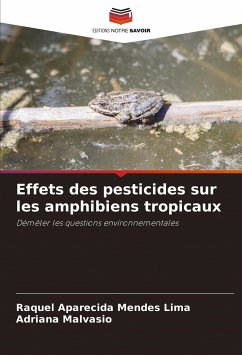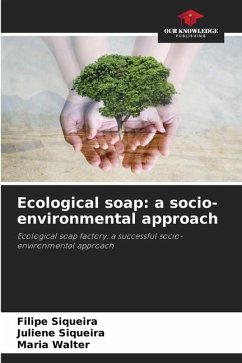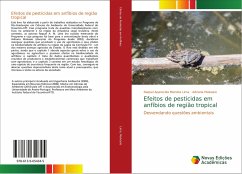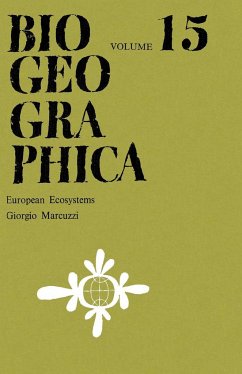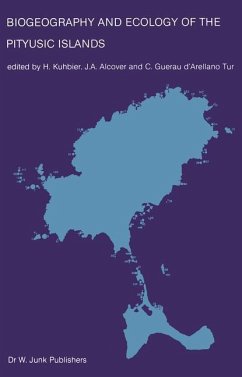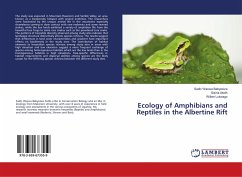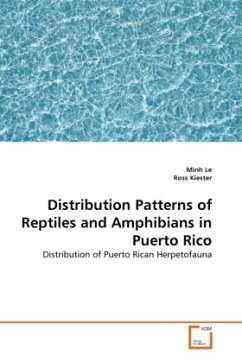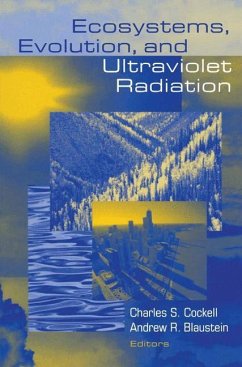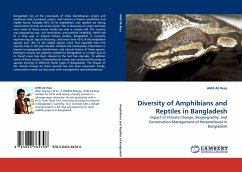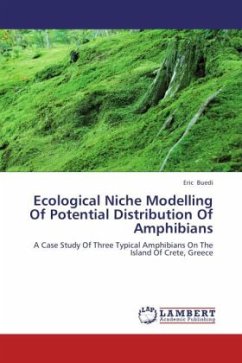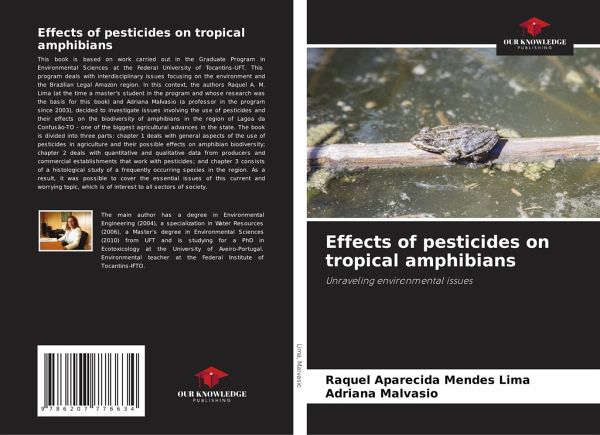
Effects of pesticides on tropical amphibians
Unraveling environmental issues
Versandkostenfrei!
Versandfertig in 6-10 Tagen
25,99 €
inkl. MwSt.

PAYBACK Punkte
13 °P sammeln!
This book is based on work carried out in the Graduate Program in Environmental Sciences at the Federal University of Tocantins-UFT. This program deals with interdisciplinary issues focusing on the environment and the Brazilian Legal Amazon region. In this context, the authors Raquel A. M. Lima (at the time a master's student in the program and whose research was the basis for this book) and Adriana Malvasio (a professor in the program since 2003), decided to investigate issues involving the use of pesticides and their effects on the biodiversity of amphibians in the region of Lagoa da Confus�...
This book is based on work carried out in the Graduate Program in Environmental Sciences at the Federal University of Tocantins-UFT. This program deals with interdisciplinary issues focusing on the environment and the Brazilian Legal Amazon region. In this context, the authors Raquel A. M. Lima (at the time a master's student in the program and whose research was the basis for this book) and Adriana Malvasio (a professor in the program since 2003), decided to investigate issues involving the use of pesticides and their effects on the biodiversity of amphibians in the region of Lagoa da Confusão-TO - one of the biggest agricultural advances in the state. The book is divided into three parts: chapter 1 deals with general aspects of the use of pesticides in agriculture and their possible effects on amphibian biodiversity; chapter 2 deals with quantitative and qualitative data from producers and commercial establishments that work with pesticides; and chapter 3 consists of a histological study of a frequently occurring species in the region. As a result, it was possible to cover the essential issues of this current and worrying topic, which is of interest to all sectors of society.





